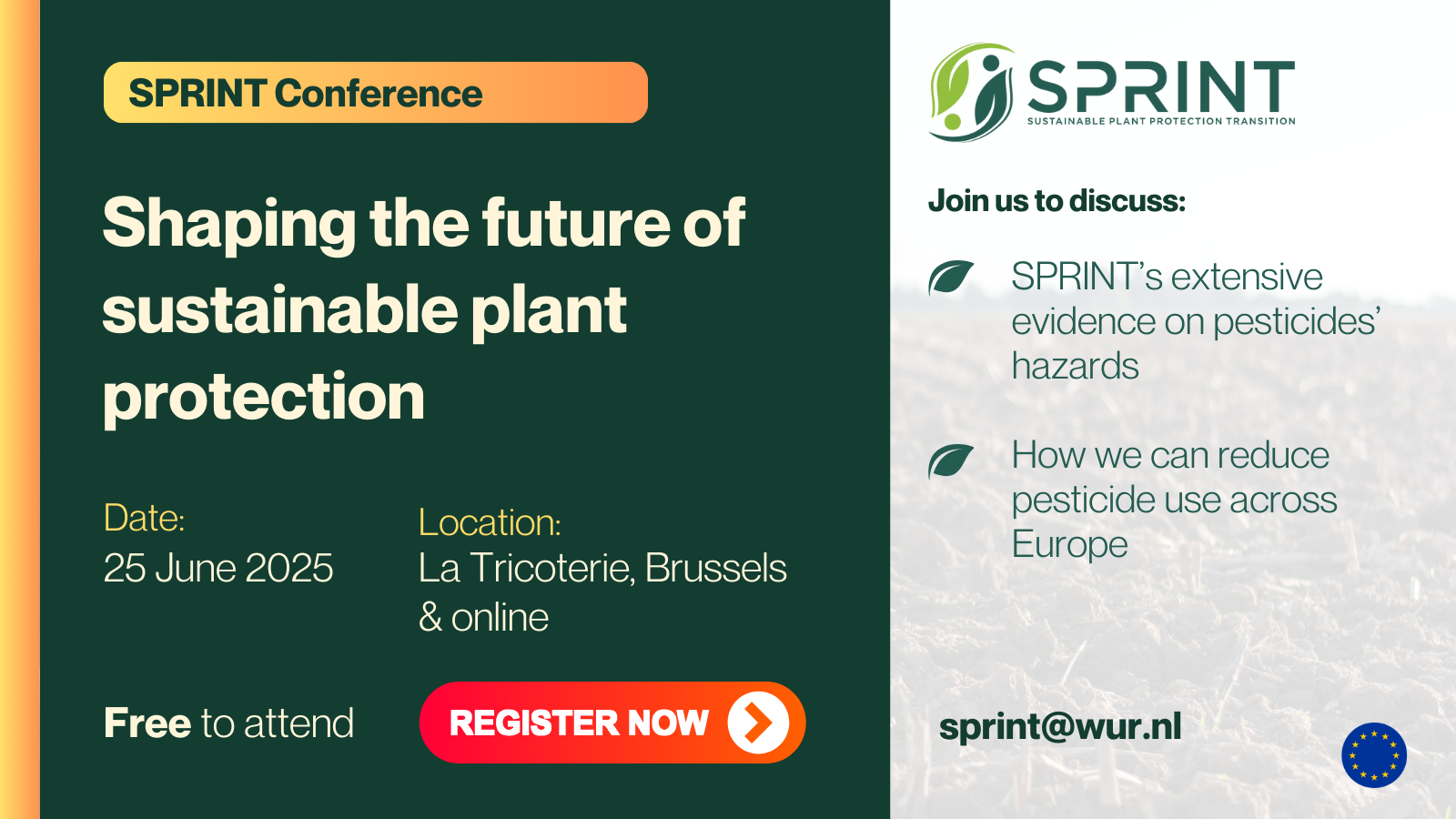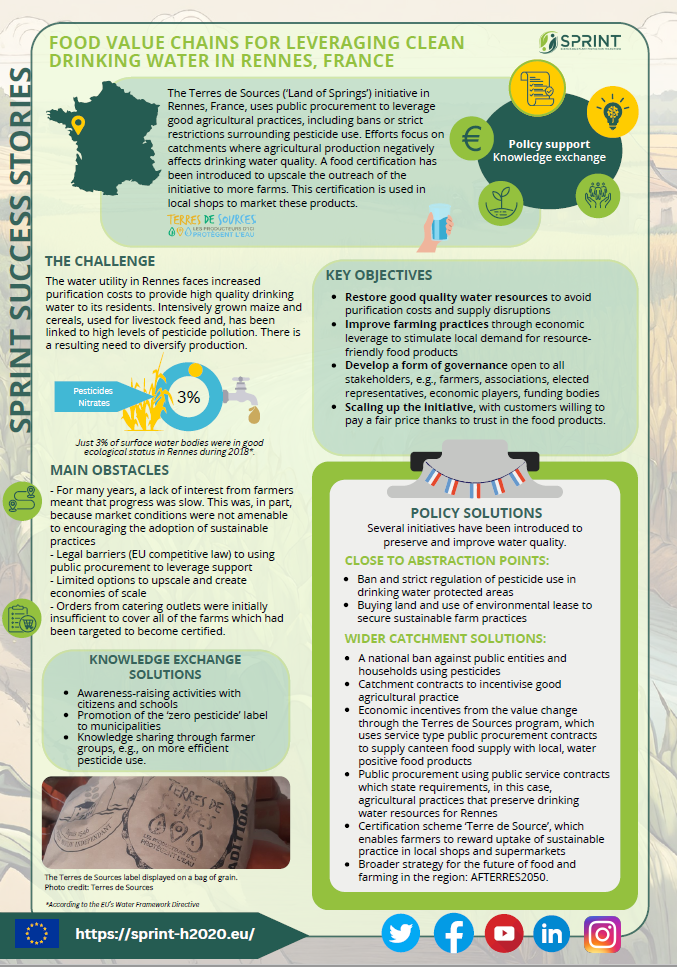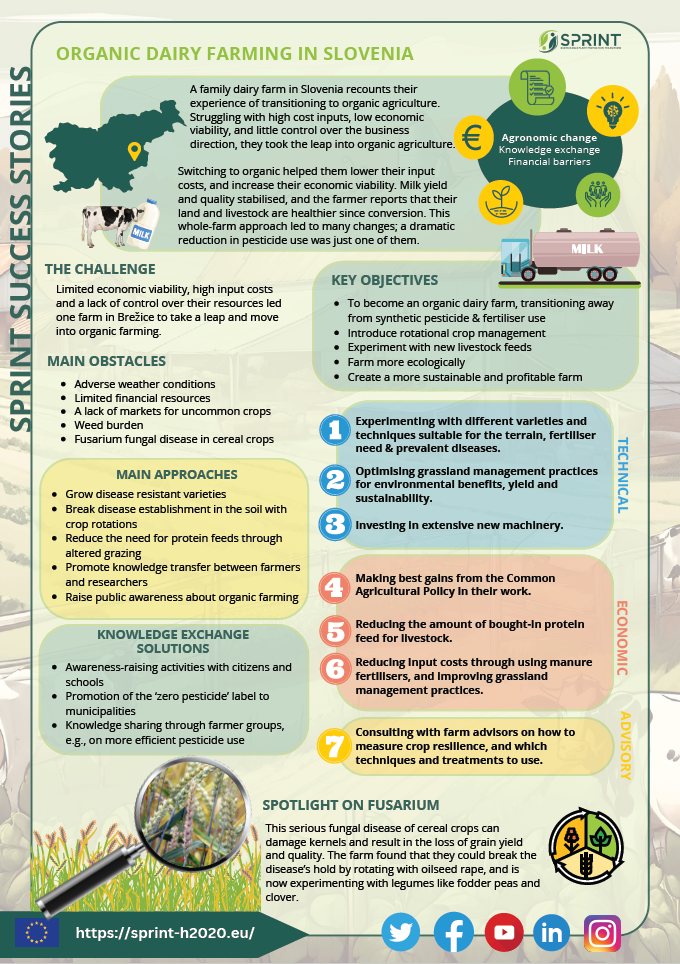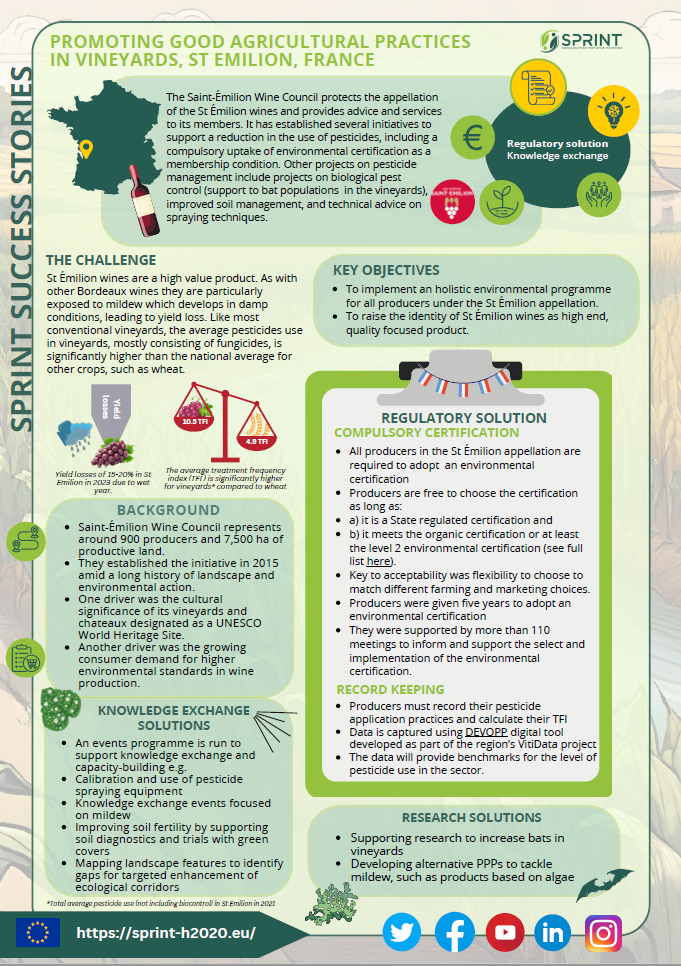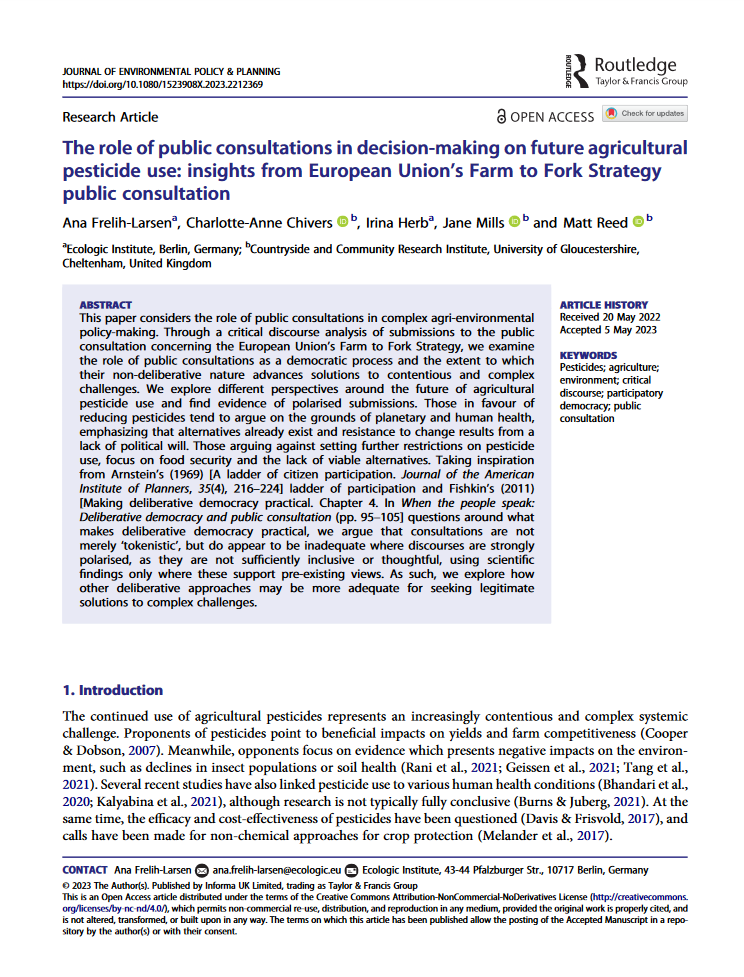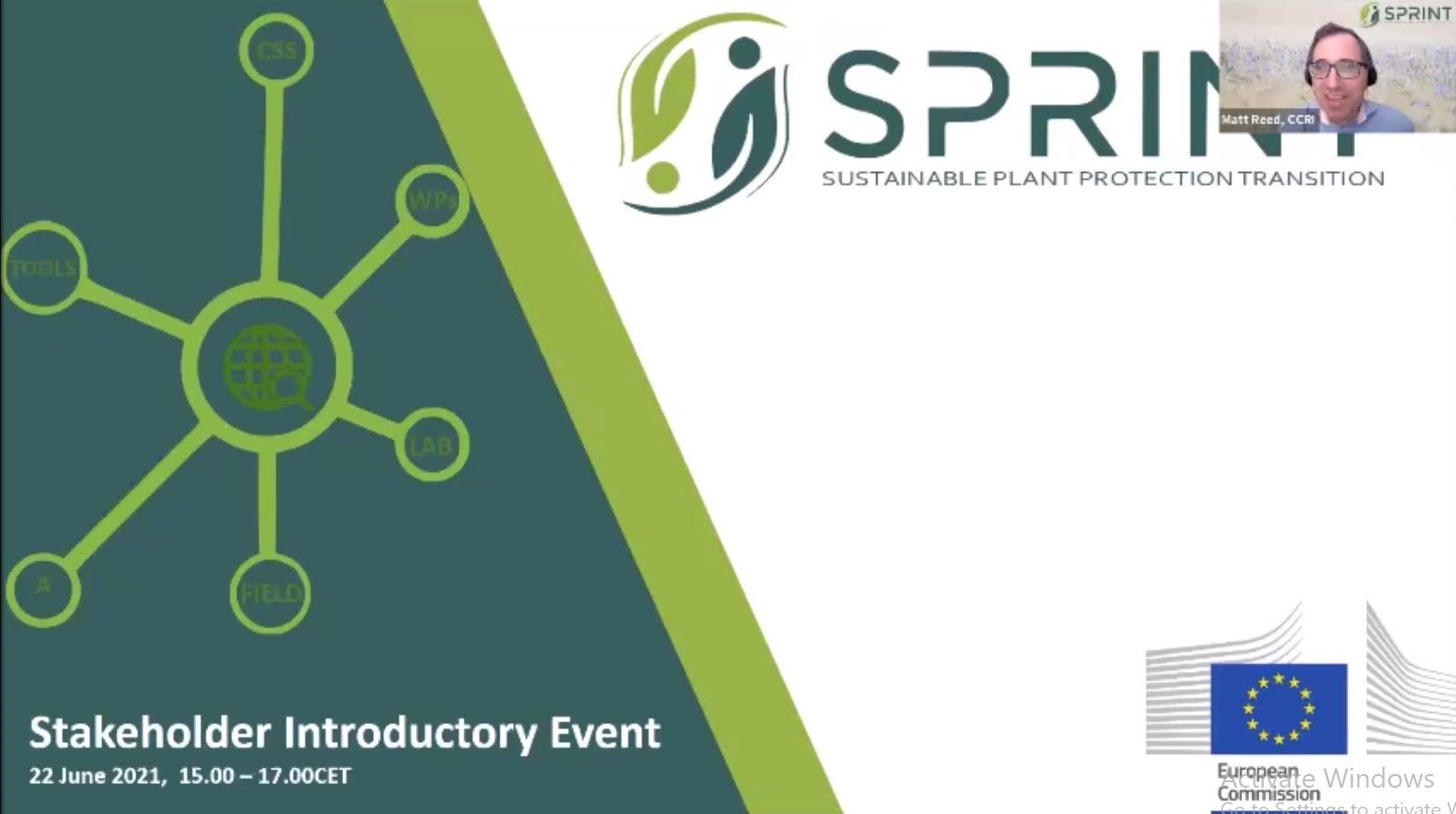Sustainable Plant Protection Transition: A global health approach (SPRINT)
- Project
- Research Program
- Duration
-
-
- Hashtag
Currently, farming systems in Europe rely strongly on the use of Plant Protection Products (PPPs). Yet, the use of PPPs pose risks to both human and environmental health with pesticide exposure being associated with health problems, including reproductive issues and cancer as well as environmental degradation. In the SPRINT project, research institutes from 11 European countries and Argentina as well as the UN’s Food and Agriculture Organisation (FAO) work together, alongside with farmers and policy makers, to accelerate the transition to sustainable plant protection.
Background
Farming systems in Europe rely strongly on the use of Plant Protection Products (PPPs) to secure yields in plant production and animal husbandry. Annually, an average of 340,000-370,000 tons of active substances are used. Of the almost 500 substances approved in the EU market, almost 50% are bioaccumulative and 25% are persistent in soil. According to the Classification, Labelling and Packaging Regulation (CLP), 30% have a high acute aquatic toxicity and 28 are suspected carcinogens.
However, data on the use of PPPs across European agricultural landscapes is scarce and fragmented. There is a need to harmonise data collection approaches across Europe and collect the data necessary to fully assess overall risks and impacts of PPPs. Furthermore, even though a general framework for the sustainable use of PPPs is in place in the EU, the tools, methods and measures, especially those aimed at a global assessment of impacts, are lacking. Transdisciplinary assessments, using a global health approach, which include cost-benefit analyses, are necessary to define transition pathways to more sustainable use of PPPs.
Main objectives
SPRINT conducts multi-disciplinary research to
- Develop, test, validate and deliver a Global Health Risk Assessment Toolbox for the integrated assessment of the impacts of pesticides on terrestrial and aquatic ecosystems as well as on plant, animal and human health. Three main attributes for health status are examined: resilience, reproduction/productivity and manifestation of diseases.
- Harmonise data collection approaches across Europe and collect the critical data needed to inform integrated approaches to fully assess overall risks and impacts of pesticide formulations, residues and metabolites.
- Assess the environmental and economic sustainability of alternative strategies to pesticide use.
- Develop transition pathways towards more sustainable plant protection in a multi-actor approach.
- Provide recommendations to stakeholders and policy makers.
Ecologic Institute in SPRINT
Ecologic Institute leads the work on developing transition pathways towards more sustainable plant protection, actively engaging with a range of relevant stakeholders and policy makers. In the first step, visions and goals for the transition are defined and compared with the current state. This includes also identifying lock-ins and barriers, which may, for example, include path dependency, farmers’ attitudes or economic constraints, regulatory governance mechanisms, consumer expectations of cheap food, subsidy structure, or lack of knowledge and applied research to support alternatives to pesticide use.
In the second step, options for moving from the undesirable current state to the desirable goal are explored and defined. Technical and regulatory aspects of the transition are explored in cross-regional workshops bringing together relevant regulatory and policy stakeholders.
For more information on the project, please subscribe to our social media feeds (@SprintH2020) or drop by the project website.



